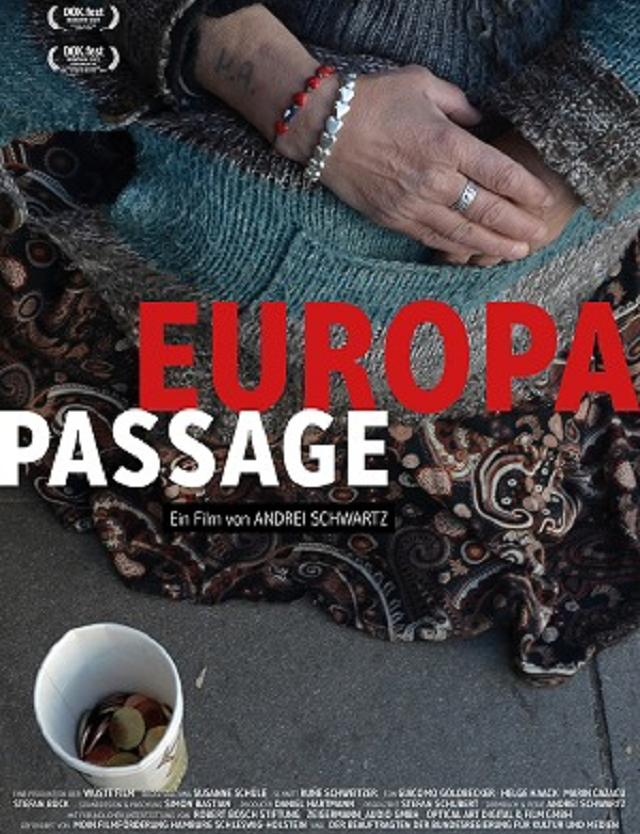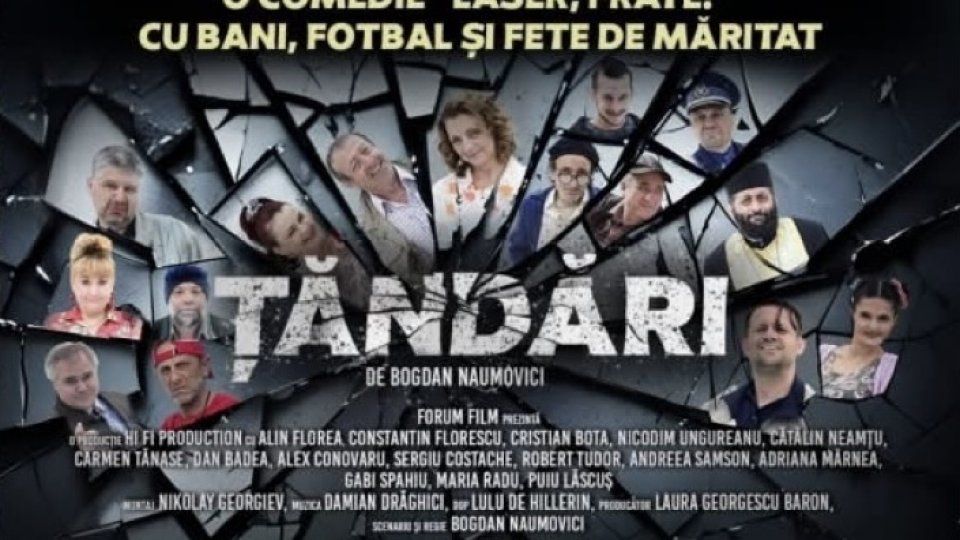Europa Passage, a new documentary by Andrei Schwartz
The film was screened at the One World Romania Documentary Film and Human Rights Festival

Corina Sabău, 09.09.2023, 14:00
Europa Passage, the latest documentary film directed by Andrei Schwartz, was screened at the One World Romania Documentary Film and Human Rights Festival, the 16th edition. Filmed over a period of six years, the documentary follows several Roma from Romania forced to commute between their homeland and the German city where they are trying to make a living. Andrei Schwartz was born in Bucharest and in 1973 he emigrated to Germany, where he attended the School of Arts in Hamburg. At the Amsterdam International Documentary Film Festival 1997, he won the Joris Ivens Award for Auf der Kippe / Wasteland, filmed in Cluj, a documentary about the daily life of the Roma, who live near the landfill site. In 2015, Andrei Schwartz made the documentary Himmelverbot/Outside, selected at the One World Romania Festival. The main character of the film, sentenced to life imprisonment for aggravated murder, is pardoned after 21 years in prison.
We spoke with Andrei Schwartz about his recent documentary, Europa Passage, and his concern to capture on film the stories of the marginalized people: As you may know, I made another film in 1997 about Pata-Rât, the garbage dump of the city of Cluj-Napoca. So, when I saw these Roma who arrived in Hamburg, I thought I was seeing those characters from the documentary made back then. I’m generally interested in looking at society from the edge, because if you have that perspective, you also understand what’s going on in the center. This recent documentary is not only a film about these people commuting between Romania and Hamburg, but also a portrait of Hamburg, obviously about the less beautiful side of the city. As I consider this city, Hamburg, my home, I was also interested in what the lesser-known side of it looks like. Returning to the interest in margins and marginalized people, I was born in Bucharest, near Balta Cocioc, a huge garbage dump, where there was a community of Roma who made a living by sorting garbage. I remember that as a child I used to pass by on the trolleybus on my way to school, but I never had the courage to enter the area to see what was going on there. I am concerned about the marginalized people also because, being Jewish, my relatives, who lived in Hungary, were exterminated in concentration camps, and extermination, unfortunately, is also part of the history of the Roma. When this film about the Roma, Auf der Kippe / Wasteland had its premiere, a film which won an award at the Amsterdam Documentary Film Festival, a kind of Cannes of documentary film, I was told that I had created a story about the human condition and about the life of the Roma. But I believe this is not only a film about the Roma and I am also referring to the recent documentary, Europa Passage, but also about some people who, under extremely difficult circumstances, are trying to preserve some normality. In Europa Passage the characters have an extraordinary sense of humor, which helps them not to give in and cease fighting. And this is great, you know. Țîrloi, one of the main characters in the documentary is always seeing the glass half full. I would like to have this degree of optimism myself.
The critic Victor Morozov describes the documentary as follows, quote: “Forced to live in ghettos, humiliated by being given only menial jobs and rejected by society, these people are pariahs, representing the dark side of an allegedly success story about the so-called integration into the “big European family. The film gives these people a presence and a name – Țîrloi, Maria and their relatives – taking them, at least temporarily, out of their sad anonymity. As a reminder always useful of the essential purpose of a documentary: to provide company, shelter and power to those in need. unquote
Director Andrei Schwartz has also referred to the feedback that he got after the premiere of Europa Passage: “It was interesting that the film reached nearly 25 German cities, where I attended the discussions. And eventually I realized the situation I was depicting in Europa Passage is not specific only to Hamburg; the Roma condition is similar in all the western cities and countries. What was impressive was the reaction of the people who saw the film, which was positive. And the attitude we have towards the beggars, an attitude which most of the time can create problems of consciousness, is not a specifically Romanian issue, neither is it a topic that concerns only mysef. From my point of view, those like my characters Țîrloi and Maria, are a symptom of a derailed society and I believe we cannot solve this situation unless we solve the other problems. However, the authorities could take some measures to improve the situation of these people.
Susanne Schuele is the director of photography of the film Europa Passage, Rune Schweitzer was in charge of editing, and Giacomo Goldbecker, Helge Haack, Marin Cazacu, Stefan Bück and Simon Bastian worked on the soundtrack of this film produced by Stefan Schubert. (LS, DB)





























